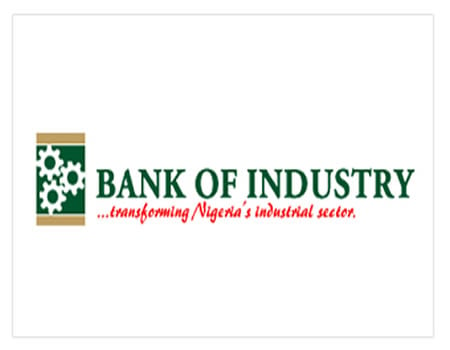The Bank of Industry has identified limited funding and a lack of technical capacity as the biggest barriers hindering ESG adoption by businesses in the country.
According to a statement on Tuesday, the bank made this observation as it launching its ‘Environmental, Social and Governance Adoption by Nigerian Micro, Small and Medium Enterprises’ report.
The report, launched in Lagos at the BOI’s inaugural ESG conference, was tagged ‘Advancing ESG adoption’.
The statement added that other challenges hindering adoption include inadequate policy-linked incentives, limited knowledge and low customer demand.
The statement stressed that the survey, conducted across the country’s six geopolitical zones, captured over 300 valid responses from a diverse pool of MSMEs spanning agro-processing, information and communication technology, manufacturing, creative industries, hospitality, healthcare, engineering & construction, and financial services.
The survey stated that 78 per cent of enterprises lamented financial limitations, and 65 per cent complained about a lack of technical expertise, underscoring the need for targeted financing and capacity-building support for MSMEs.
“The report also showed that 65 per cent cited inadequate ESG-oriented incentives to enable growth, while 20 per cent of MSMEs stated a lack of customer demand, with further findings showing that 45 per cent lack knowledge, concluding that market forces alone are insufficient to drive ESG adoption. Key insights and improvement areas in the report included ESG-compliant products with targeted loan features, targeted capacity building, inclusive leverage for broader reach for older entrepreneurs and introducing women-focused ESG-compliant credit windows to narrow the gender adoption gap. Other areas are leveraging blended financing to improve access to ESG-linked capital and technical upskilling via regional hubs,” the statement read in part.
Speaking at the event, the Managing Director/Chief Executive Officer of BOI, Dr Olasupo Olusi, said MSMEs account for over 80 per cent of Nigerian businesses, contribute nearly half of the country’s gross domestic product and employ millions of Nigerians.
He said that many still face barriers in understanding what ESG means in practice and how to embed the principles in their daily operations.
Olusi stated that these barriers make many enterprises more vulnerable, less competitive and less future-ready, adding that BOI aims to bridge this gap by equipping MSMEs to grow, compete and prosper sustainably and profitably in the evolving landscape of the global economy.
The BOI MD said the report aligns with Nigeria’s commitments under the Paris Agreement, the Nationally Determined Contributions, and the Energy Transition Plan, particularly in achieving the country’s 47 per cent conditional emission reduction target by 2030.
Olusi explained that ESG adoption will improve access to finance, especially as global investors and development finance institutions prioritise sustainability projects.
He added that it will also help businesses manage risks, reduce costs, attract talent and comply with emerging international standards.
“ESG principles will help us align our industrial ambitions with national and global climate goals, while enabling us to attract green capital, spur innovation and build industries that can compete globally,” he said.
He further stated that while these broader-level gains have national implications, Nigeria’s adoption of ESG principles is essential for industrialisation and economic growth, “especially as clean energy, efficient resource use, safe workplaces and responsible governance create the foundation for lasting industrialisation.”
In her keynote address, the Director-General of the National Council on Climate Change, Tenioye Majekodunmi, said climate realities, shifting investor expectations and rapid technological changes are reshaping global economies.
According to her, the transition to a low-carbon future will profoundly affect how businesses compete, attract finance and build resilience.
Majekodunmi argued that global investors are redirecting trillions of dollars towards sustainable assets, with consumers demanding transparency and ethical sourcing, while sustainable supply chains are also being restructured around carbon footprints.
She said for Nigerian SMEs, this transition presents both risks and opportunities, adding that enterprises that adapt early by embedding ESG principles into their operations will be the preferred partners for global trade and finance.
Majekodunmi described the BOI’s ESG framework for MSMEs as a blueprint for how finance can be directed to drive inclusive finance laws and responsible industrial growth.
She said by aligning its lending and investment practices with global ESG and sustainable finance principles, BOI is setting a new national standard that positions Nigerian enterprises to access green and sustainable finance both domestically and internationally.
Also speaking, the Deputy Country Director of Agence Française de Développement Nigeria, Mahamadou Diarra, commended BOI’s proactive steps in advancing responsible financing and environmental sustainability within Nigeria’s financial system.
Diarra emphasised that BOI’s efforts will position it as a trusted partner for international financiers, citing ongoing global efforts to harmonise ESG frameworks and due diligence standards among development partners such as the World Bank and the Asian Development Bank.
Diarra reaffirmed AFD’s commitment to supporting the BOI in strengthening its ESG management systems and promoting climate-related investments in the country.
He noted that as a key development partner, AFD places great emphasis on ensuring that the institutions it supports maintain the same level of environmental and social diligence required in its own operations.
The Bank of Industry is Nigeria’s development finance institution, focused primarily on industrialisation and private-sector development. Its mandate includes providing long-term low-interest financing, advisory services, and strategic intervention support to large, medium, and small enterprises for establishment, expansion, diversification, rehabilitation, or modernisation.















